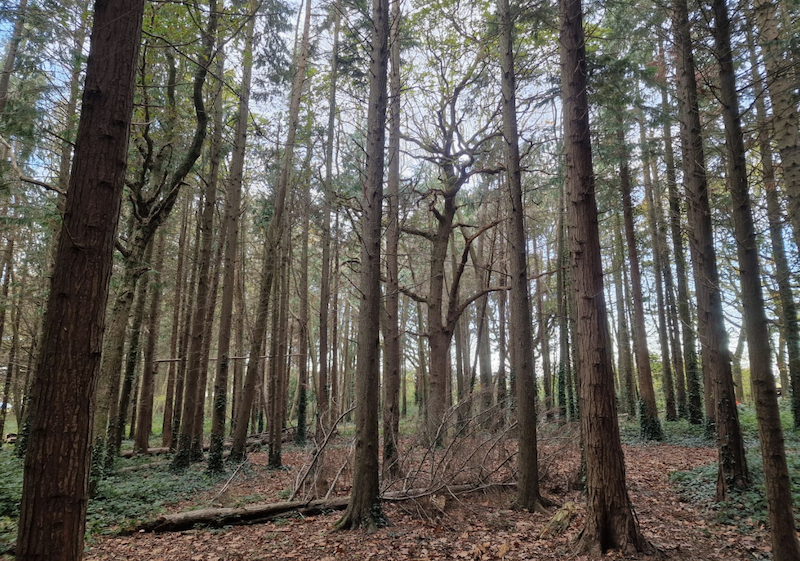Work to return Mill Copse, in Yarmouth, to its natural native state has restarted, after stalling more than three decades ago. The project, led by Wight Nature Fund (WNF) in partnership with local firm ArbAdvice, aims to benefit plants, wildlife and the wider community.
The eastern half of the copse was cleared of conifers around 35 years ago, and replanted with native species, resulting in the carpets of bluebells and other flora enjoyed by visitors each spring. However, regeneration of the western half was halted in the 1990s, leaving conifers planted after the Second World War to dominate the woodland.
The latest work will see selected conifers removed to improve biodiversity. Conifers make soil acidic, suppressing native species such as bluebells.
Their removal will increase light to the forest floor and, over time, allow the soil to recover, encouraging native flora to thrive.
The felling will also create better foraging for red squirrels and dormice, with studies showing mixed woodlands support higher population densities. Trees chosen for removal will open the canopy around veteran oaks, using a technique known as halo thinning.
ArbAdvice is carrying out the work as part of a City & Guilds training course, helping to educate the next generation of Island arborists. WNF trustees say they are pleased to support a local business while delivering environmental improvements.
The charity acknowledges that tree felling can cause concern, but stresses the work is part of a Forestry Commission‑approved management plan.
Footpaths may be closed temporarily for safety, but the trustees hope that the community will support the long‑term benefits, which include enhanced biodiversity, healthier soils, and the return of more beautiful flowers to this much‑loved woodland.



